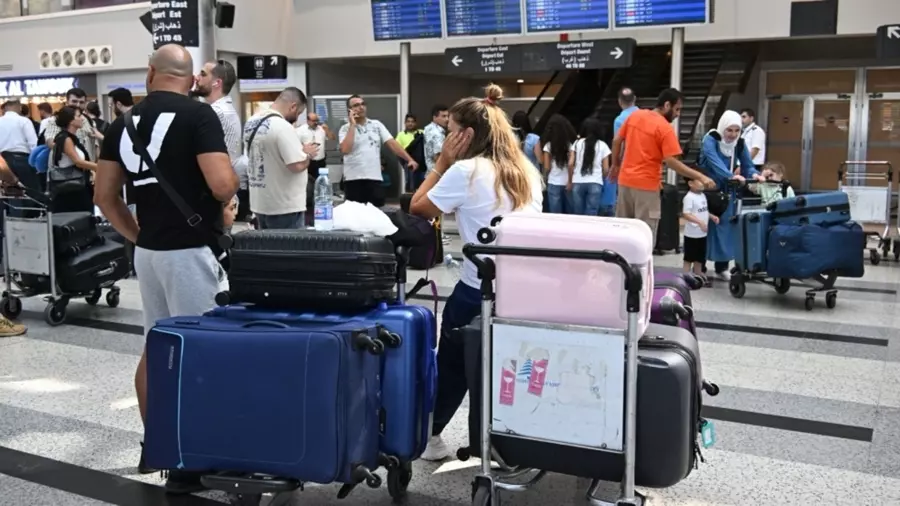The Lebanese National News Agency (NNA) recently reported that pagers and walkie-talkies have been banned on flights to and from Beirut as a result of incidents involving these devices in the country. At least 37 people were killed and around 3,000 injured when hand-held devices used by Hezbollah members exploded across Lebanon throughout Tuesday and Wednesday. The militants have blamed Israel for the incident.
The ban was enacted by Beirut Rafic Hariri International Airport on Wednesday, with a new directive prohibiting passengers from carrying pagers and walkie-talkies on board any aircraft. The restriction applies to all types of luggage and cargo, as stated by Faid El Hassan, the head of the Lebanese civil aviation authority.
Hezbollah has historically used pagers as a low-tech and supposedly secure method of communication due to concerns about Israel potentially hacking into their smartphones and using them for surveillance. However, multiple media outlets have reported that Israeli spy agency Mossad was allegedly responsible for rigging the devices with explosives. The New York Times cited sources as saying that Mossad set up a fake firm in Hungary to produce the compromised pagers under a licensing agreement with a Taiwanese company.
Hezbollah leader Hassan Nasrallah has described the blasts as a “declaration of war” and vowed retaliation, while Israeli officials have reiterated their determination to prevent Hezbollah from firing rockets and mortar shells into northern Israel. The United Nations has condemned the pager and walkie-talkie explosions as “unacceptable,” with UN human rights chief Volker Turk calling for an independent investigation into the incident.

